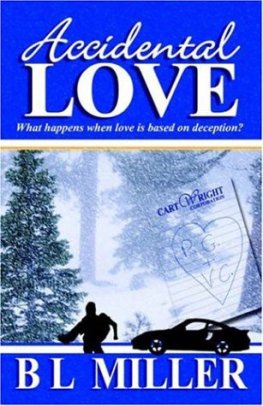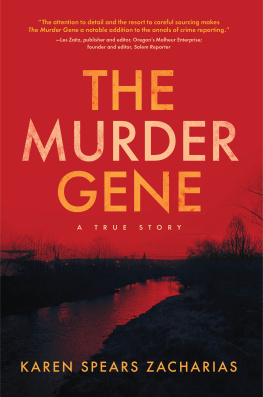ACKNOWLEDGMENTS

W hile it should be readily apparent that The Taker is a work of the imagination, a measure of research went into it, especially regarding the history of the state of Maine. I drew on two volumes in particular: Maine in the Early Republic, edited by Charles E. Clark, James S. Leamon, and Karen Bowden (University Press of New England, 1988), and Liberty Men and Great Proprietors: The Revolutionary Settlement on the Maine Frontier 17601820, written by Alan Taylor (University of North Carolina Press, 1990). Any mistakes or inaccuracies are my own.
Its often said that a writers life is lonely and that we write in solitude, and while thats mostly true, it would be impossible to make it to publication without relying on the help and good nature of many people along the way. Id like to thank the readers of previous versions of this novel, including Dolores, Lisa, Randy, Linda, Jill, Kelley, and Kevin; my professors at Johns Hopkins, Tim Wendel, Richard Peabody, Elly Williams, David Everett, and Mark Farrington; Elyse Cheney and Jeff Kleinman for their early encouragement; and the wonderful organizers of the Squaw Valley Community of Writers.
Enormous thanks go to Tricia Boczkowski, my editor at Gallery Books, for her editorial guidance and boundless good spirits in getting the novel to publication. Also, my thanks to everyone at Gallery for their efforts on my behalf.
Tremendous and undying thanks to Kate Elton, my editor at Century, and her assistant Anna Jean Hughes, for their incredible enthusiasm and support for the novel.
Thanks are also due to Nicki Kennedy, Sam Edenborough, and Katherine West, foreign rights agents at the Intercontinental Literary Agency, and to the publishers of the foreign editions of The Taker, for their confidence in taking on this debut work: Giuseppe Strazzeri, publisher, and Fabrizio Cocco, editor, at Longanesi; Cristina Arminana at Mondadori; Katarzyna Rudzka at Proszynski Media; and EKSMO Publishing. Thanks, too, to Matthew Snyder at Creative Artists Agency for seeing promise in The Taker.
My deepest thanks must go to Peter Steinberg, my agent, not only for his belief in the novel but for his deft editorial work, which took a wobbly story and transformed it into the novel you have in your hands today.
Thanks to my family for putting up with my insanely writerly ways since I was a humorless little child.
And of course, all my love to my husband, Bruce, who patiently allowed me to sock countless hours into this book and made all my dreams come true.
AUTHORS NOTE

A s The Taker is a work of fantasy, I dont imagine readers come to it expecting historical authenticity, but there is one liberty Ive taken with history that must be pointed out. While there is no town of St. Andrew in the state of Maine, if the reader attempts to triangulate the fictional villages location based on clues in the text, youll see that if it were to exist, it would fall about where the town of Allagash stands today. Truth be told, this exact area of Maine wasnt settled until the 1860s. However, the Acadian town of Madawaska, not far away, was settled in 1785, and so in my mind it didnt seem too much of a stretch to have Charles St. Andrew found his outpost around this time.
ONE

G oddamned freezing cold. Luke Findleys breath hangs in the air, nearly a solid thing shaped like a frozen wasps nest, wrung of all its oxygen. His hands are heavy on the steering wheel; he is groggy, having woken just in time to make the drive to the hospital for the night shift. The snow-covered fields to either side of the road are ghostly sweeps of blue in the moonlight, the blue of lips about to go numb from hypothermia. The snow is so deep it covers all traces of the stumps of stalks and brambles that normally choke the fields, and gives the land a deceptively calm appearance. He often wonders why his neighbors remain in this northernmost corner of Maine. Its lonely and frigid, a tough place to farm. Winter reigns half the year, snow piles to the windowsills, and a serious biting cold whips over the empty potato fields.
Occasionally, someone does freeze solid, and because Luke is one of the few doctors in the area, hes seen a number of them. A drunk (and there is no shortage of them in St. Andrew) falls asleep against a snowbank and by morning has become a human Popsicle. A boy, skating on the Allagash River, plunges through a weak spot in the ice. Sometimes the body is discovered halfway to Canada, at the junction where the Allagash meets up with the St. John. A hunter goes snow blind and cant make his way out of the Great North Woods, his body found sitting with its back against a stump, shotgun lying uselessly across his lap.
That werent no accident, Joe Duchesne, the sheriff, told Luke in disgust when the hunters body was brought to the hospital. Old Ollie Ostergaard, he wanted to die. Thats just his way of committing suicide. But Luke suspects if this were true, Ostergaard would have shot himself in the head. Hypothermia is a slow way to go, plenty of time to think better of it.
Luke eases his truck into an empty parking space at the Aroostook County Hospital, cuts the engine, and promises himself, again, that he is going to get out of St. Andrew. He just has to sell his parents farm and then he is going to move, even if hes not sure where. Luke sighs from habit, yanks the keys out of the ignition, and heads to the entrance to the emergency room.
The duty nurse nods as Luke walks in, pulling off his gloves. He hangs up his parka in the tiny doctors lounge and returns to the admitting area. Judy says, Joe called. Hes bringing in a disorderly he wants you to look at. Should be here any minute.
Trucker? When there is trouble, usually it involves one of the drivers for the logging companies. They are notorious for getting drunk and picking fights at the Blue Moon.
No. Judy is absorbed in something shes doing on the computer. Light from the monitor glints off her bifocals.
Luke clears his throat for her attention. Who is it then? Someone local? Luke is tired of patching up his neighbors. It seems only fighters, drinkers, and misfits can tolerate the hard-bitten town.
Judy looks up from the monitor, fist planted on her hip. No. A woman. And not from around here, either.
That is unusual. Women are rarely brought in by the police except when theyre the victim. Occasionally a local wife will be brought in after a brawl with her husband, or in the summer, a female tourist may get out of hand at the Blue Moon. But this time of year, theres not a tourist to be found.
Something different to look forward to tonight. He picks up a chart. Okay. What else we got? He half-listens as Judy runs down the activity from the previous shift. It was a fairly busy evening but right now, ten P.M., its quiet. Luke goes back to the lounge to wait for the sheriff. He cant endure another update of Judys daughters impending wedding, an endless lecture on the cost of bridal gowns, caterers, florists. Tell her to elope, Luke said to Judy once, and she looked at him as though hed professed to being a member of a terrorist organization. A girls wedding is the most important day of her life, Judy scoffed in reply. You dont have a romantic bone in your body. No wonder Tricia divorced you.









